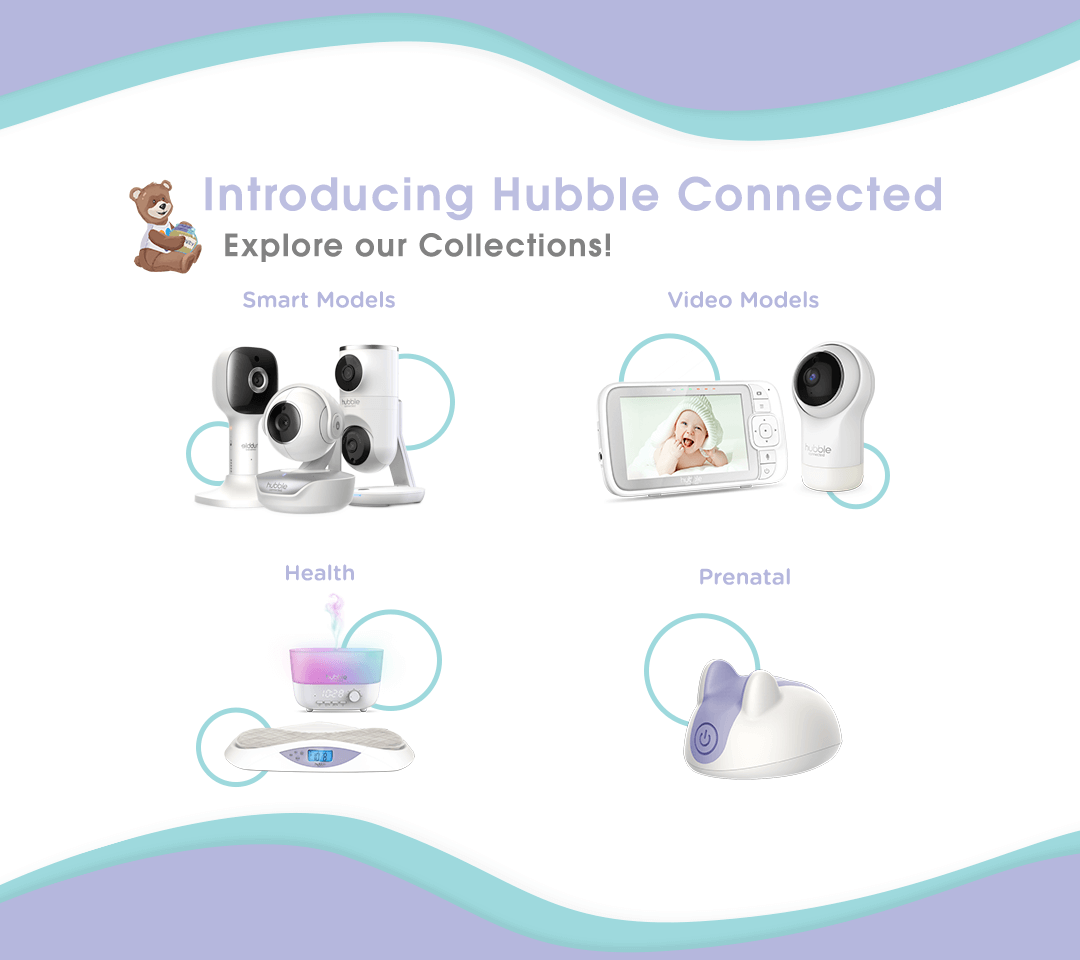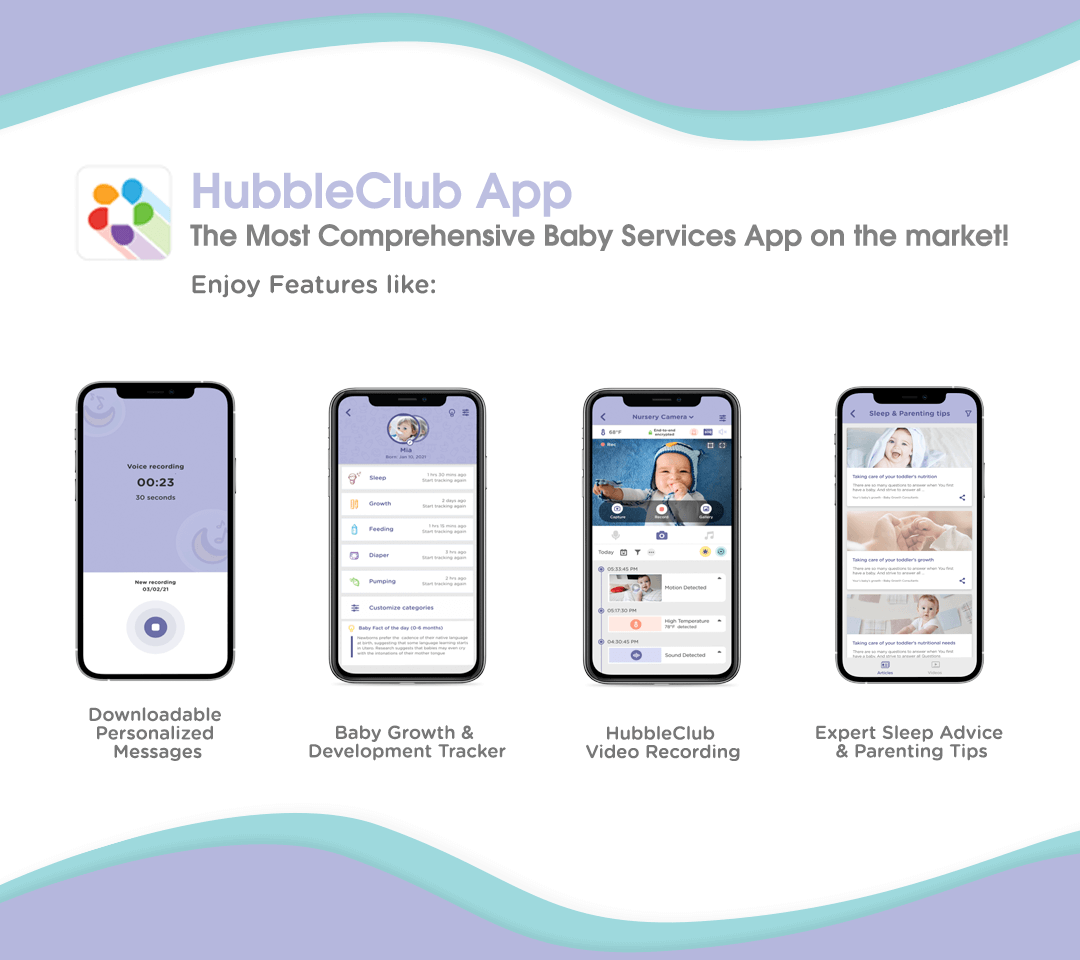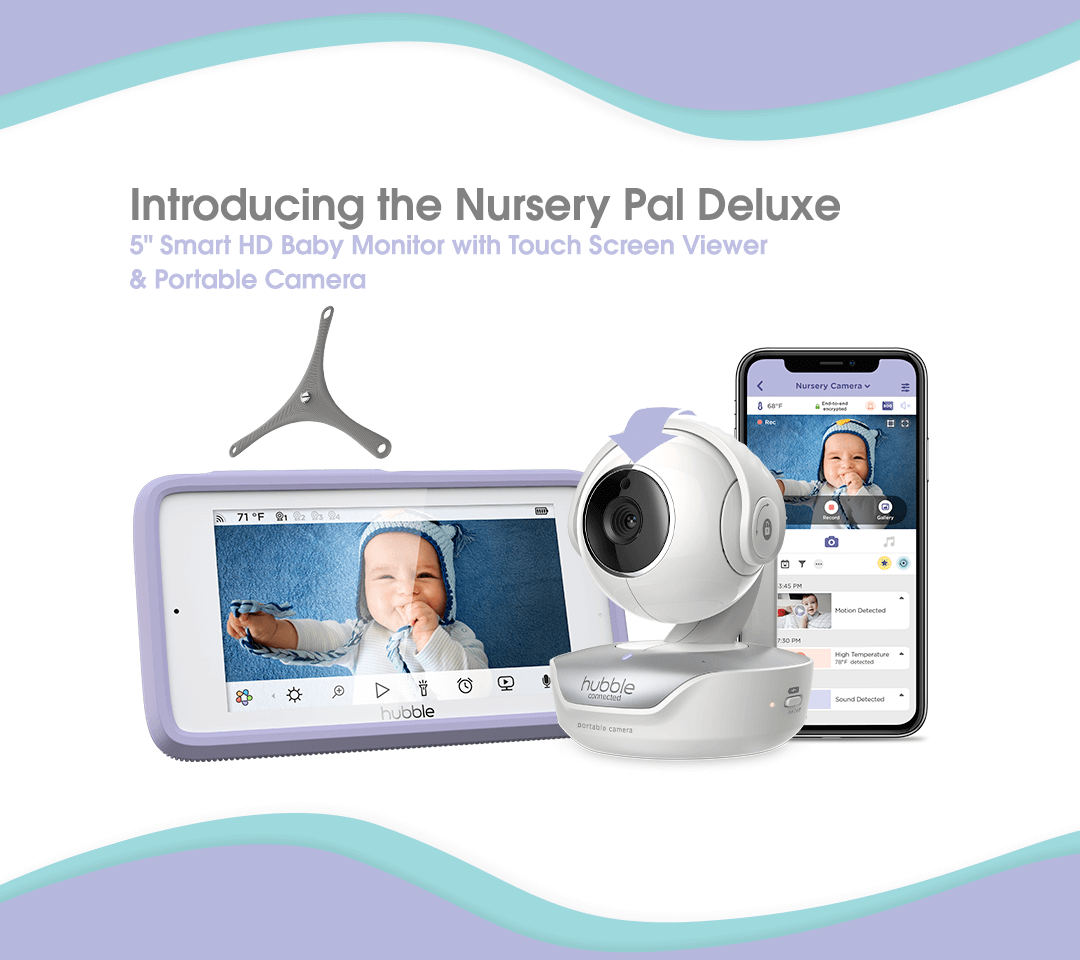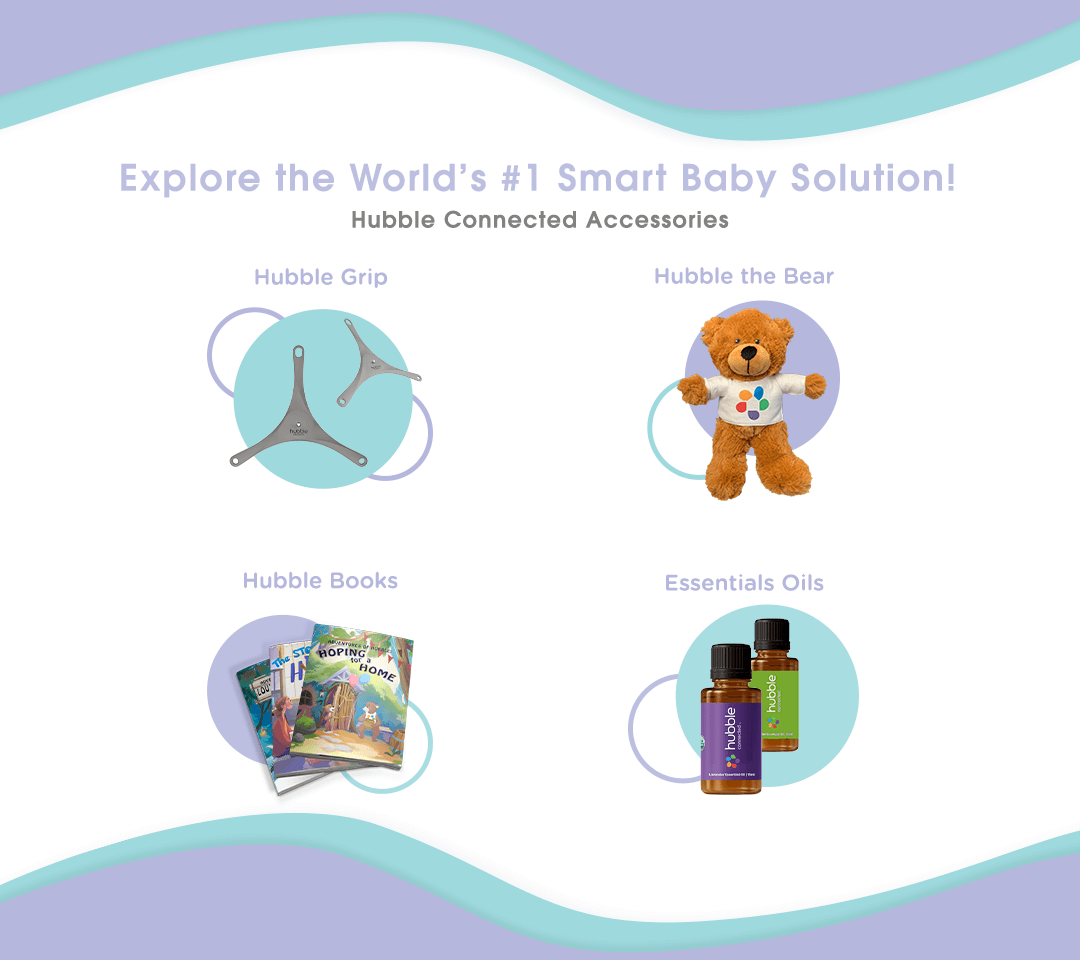Your Cart is Empty
Your Cart is Empty
December 11, 2021 8 min read

Just about every parent who takes care of a newborn worries when they cry or get cranky. Am I doing it right? Is my child healthy? They hear about friends or relatives whose children sleep peacefully through the night and wonder if their child’s experience is normal and healthy.
First of all, don’t worry. It is natural for newborns to vary in their sleep schedules and habits. As you get to know your baby’s personality and temperament, you’ll develop a baby sleep schedule for your newborn. As they get older, you’ll be able to shape their bedtime routine so that they get the sleep they need.
Why Is a Newborn Baby Sleep Schedule So Important?
If your newborn baby cries often or seems agitated, they might just be overtired. Knowing your baby’s sleep schedule can help you make their transition between sleep and wakefulness smoother. You can have peace of mind knowing that your child is getting enough sleep. If your child’s sleep patterns are a sign of a more serious problem, you can be proactive in getting your child the help they need.
A Typical Newborn Baby Sleep Schedule
New parents who own cats might be familiar with one aspect of a newborn’s sleep schedule – they need quite a lot of sleep! Newborns can sleep up to 18 hours a day, about 8 or 9 hours in the day and 8 or 9 hours at night.
It can be hard to predict when a newborn will need sleep, but this early sleep is important. It gives the baby’s body and brain time to grow and develop. The period between 0 and 6 months is an opportunity for your child to develop healthy sleep rhythms and for you to learn your child’s sleep patterns.
For the first six months of your child’s development, it is normal for your child to have irregular sleep patterns, so let your child sleep when they need it. Be attentive to signs that your child needs sleep and provide a calm, safe, and quiet environment for your child to sleep in accordance with their baby sleep schedule.
The “Nap Gap”
As your newborn baby grows, you will probably notice that they can stay awake for longer periods of time between bouts of sleep. If you notice that your child can stay awake for a few hours between naps, you can start to plan a routine.
Keep in mind that your child might vary from that routine, becoming overtired if there has been a lot of stimulation during the day. Don’t be rigid in holding your child to a baby sleep schedule. Babies and older children can experience sleep regression – difficulty sleeping through the night – due to developmental changes, an illness, teething, or other factors. Sleep schedules are a guide, not a guarantee.
Signs that Your Baby Is Tired
If your baby is overtired, they may become so irritable and anxious that they cannot naturally fall asleep. If this happens frequently, it can interfere with the development of a healthy baby sleep schedule and make both you and your child miserable.
The best way to avoid overtiring or overstimulating your baby is to let them sleep as soon as possible when they need it. Noticing the signs that your child needs to sleep can help you head off the irritability cycle. Some signs that your baby is tired or even overtired include:
● yawning
● being fussy
● not eating
● dozing off while eating
● rubbing eyes
● less smiling, cooing, and laughing
If you see any of these signs, take the child to the bedroom or a quiet place away from the commotion of the rest of the family, set them down, and give them a chance to sleep.
Setting the Stage for Sleep
When possible, taking steps to prepare before putting your baby to bed can make the transition to sleep easier, helping you stick to a baby sleep schedule. Try the following tips while your baby is awake.
· Warm the crib with a hot water bottle before bedtime, then take the hot water bottle out to leave a nice warm spot for your baby to sleep in.
· Change your baby’s diaper before putting them to bed. With luck, you won’t have to change it again until after the baby naturally wakes up. That will help your baby with sleeping through the night.
· Place one hand on their belly as you set the child down in their crib to stabilize them and avoid waking them if they are drifting off to sleep.
· Soft, peaceful music can help your infant go to sleep. Babies learn to associate music with other things in their environment. Playing a set of songs only at bedtime can condition them to feel sleepy when those songs are playing.
Following the same nighttime routine allows the baby to associate certain activities with sleep. Soft music, a dark room, a warm bottle, and a pacifier can help tell your child it is time to relax and sleep soon.
Calming an Overtired Newborn
If your child does not sleep naturally when you put them in bed or in their crib, you can help them sleep by trying some of these strategies.
● Set your baby down on their back, not their side or stomach.
● Be sure that the room is free of irritants, like cigarette smoke
● Be sure that the room is not too hot or too cold.
● Don’t put any toys or other distractions in the crib with the baby
● Try giving the baby a pacifier
If the child still does not go to sleep, be patient but alert. Try to burp your baby or gently rock your baby. Seek medical attention if your baby appears to be in pain, is running a fever, or is showing other symptoms of a medical condition. This blog post is not a substitute for medical advice. Follow the advice of your child’s pediatrician regarding their sleep schedules.
A Baby Sleep Schedule for 6 Months to 1 Year
As your child grows, they will require less and less sleep. Infants between 6 months and 1 year of age sleep between 10 and 15 hours per day, with two or three hours of wakefulness between naps. During this stage, babbling and the beginning of language production develops. Talking to your baby stimulates their language development and helps you to gauge their level of wakefulness.
At about six months, your child should develop the ability to roll from their back to their stomach. This milestone brings the risk of your child moving around in their sleep. Keep an eye on your child, and be sure to set them down in a safe place, such as a crib, to reduce the risk of falls.
Learning Your Child’s Sleep Schedule
Every child is different. Some sleep through the night at an early age, while others struggle. Like adults, you might find that some are more active during the day and others are more active at night. Once your baby’s sleep patterns become evident, be flexible and accommodate their daily rhythms when possible.
Early in your baby’s development, you might have to catch sleep when you can, day or night. As your child grows through infancy and toddlerhood, you can gradually become more consistent in sticking to a bedtime routine.
Once your child learns language, you can teach them about bedtime and establish rules for bedtime. However, if you have already established a bedtime routine beforehand, the child will more naturally fall asleep during bedtime without making much of a fuss.
Both babies and older children will have trouble going to sleep if there is noise or activity is going on around them. Once your child is sleeping, keep conversations quiet and turn down televisions and other stimuli.
Don’t fight or argue with your partner when your child is trying to sleep. Have discussions at a low volume in a calm tone of voice. You don’t want your child to associate bedtime with anxiety and conflict. That could lead to long-lasting sleep disturbances.
Adapting to Your Child’s Sleep Needs
Most of this blog post is about a baby sleep schedule, but your health is important too. You need to help your body and your sleep rhythms adjust to the responsibility of tending to a child 24/7. Try these tips to help you recharge and be at your best when your baby needs you.
Get rid of distractions, such as your phone. Like your baby, you need a quiet place to sleep. If you find that music helps you sleep, give gentle music a try.
If your baby cries, you might not need to get up and check on them right away. Watchful waiting while your baby is fussing helps your child learn to self-soothe, which is a valuable life skill.
Seek help with childcare duties. If you have a partner, coordinate with them so that you can get sleep while they care for the baby and vice versa. If you are raising a newborn alone, ask friends or relatives to watch the child for a few hours so that you can sleep. Hire a qualified babysitter for a few hours so that you can get a nap.
Track your sleep, either with a log or a fitness monitor. It will warn you if you have not been getting enough sleep or if your sleep quality has declined. Becoming overtired or burned out creates a greater risk for you and your baby.
Using a Baby Monitor
If your baby or toddler does not sleep in the same room as you, a baby monitor can help with the development of a healthy baby sleep schedule in the following ways.
A baby monitor allows you to watch your child and make sure they are all right without having to get up. This helps you rest and lets the child self-soothe while reassuring you that the child is safe.
A smart monitor can tell you if the room has become too warm or too cold. Imagine if you are on the first floor while your child sleeps on the second or if the child’s window is open. The child could be experiencing a different temperature than you are. The monitor will let you know if the air temperature in the baby’s room is not optimal.
Support Your Child’s Health with Hubble Connected
Hubble Connected provides baby monitors and other products that help young parents keep their babies safe and secure, so they can grow into healthy adults. The HubbleClub dashboard allows you to keep an eye on your baby while they sleep without disturbing the baby sleep schedule. Our app will let you know if they move or if the temperature is too low or too high.
Watch your baby from anywhere in the house. Be a backup for your babysitter by checking in on your baby when you are away from the house running errands. Use the screen capture and video recordings to capture your baby’s milestones from miles away.
To find out more about Hubble Connected baby monitors, smart monitors, and other products, explore our website, chat with us live, or email us at support@hubbleconnected.com.

December 21, 2023 2 min read

November 30, 2023 3 min read
and get $10 OFF your next Hubble Connected purchase.
.png?v=1627679689)

.png?v=1627679796)
.png?v=1627679828)



